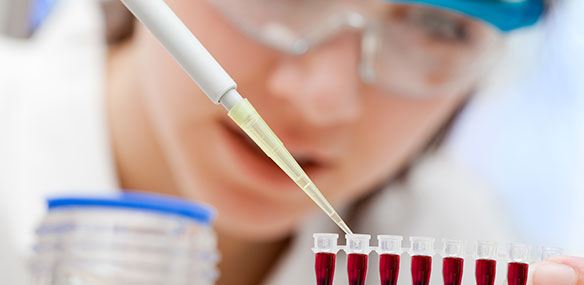PAMF’s Genetic Counseling program helps you recognize your risk for cancer by learning medical, psychological and familial implications of genetic contributions to disease. Genetic counselors work as members of a healthcare team, alongside medical oncologists to provide you with a personalized and detailed care plan pertaining to your risk.
Our genetics team, which includes genetic counselors, specially trained medical oncologists and nurse specialists, will ask you about your family medical history, particularly about cancer and related medical conditions. We will use this information to help assess your need for genetic testing and your risk of developing cancer. PAMF’s genetic counselors are licensed by the California Department of Public Health and Certified by the American Board of Genetic Counseling.

What is a Genetic Counselor?
Genetic counselors are healthcare professionals with specialized graduate degrees from accredited genetic counseling programs. Genetic counselors combine their knowledge of basic science, medical genetics, epidemiological principles, and counseling theory to provide counseling for a variety of genetic or genomic indications.
What does a Genetic Counselor Do?
- Provides cancer risk and assessment based on personal and family history.
- Educates about inheritance patterns, genetic testing, and research opportunities.
- Coordinates genetic testing, when appropriate, to detect genetic mutations that elevate cancer risk and promote informed decisions about genetic testing.
- Provides support and resources for families with a hereditary cancer syndrome or a strong personal or family history of cancer.
- Makes recommendations for cancer screening/prevention and management based on a genetic mutation and/or family history.
Who Benefits from Cancer Genetic Counseling?
- Anyone considering genetic testing for cancer risk, based on their personal or family history of cancer, should have counseling first so informed decisions can be made.
- People with a known hereditary cancer syndrome: either identified in them or in their family.
- Anyone with prior genetic testing who would further like to further discuss a genetic test result.
How to Prepare for Your Appointment
The genetic counselor will ask about your personal cancer history, including:
- Have any of your family members had cancer?
- What type of cancer did they have? (Different types of cancer can run together in families.)
- What body areas were affected?
- What was the age of diagnosis for family members with cancer? (Age of diagnosis is an important factor in risk assessment of inherited cancers versus cancers that happen mostly due to chance.)
It may also be helpful to talk with family members about genetic testing. If someone in your family already had genetic testing, it is important to get a copy of those genetic test results.
Referrals
We encourage cancer genetic counseling referrals for people with a personal or family history suggestive of a hereditary cancer syndrome. You can self-refer for a genetics consultation; however, we strongly recommend that you first speak with your doctor for a referral. For information regarding referrals please contact us at (408) 730-6145.
Genetic Information Non-Discrimination Act (GINA)
The Genetic Information Nondiscrimination Act (GINA), in place since 2008, prohibits discrimination by health insurance companies and employers based on genetic information. GINA prohibits group health plans and health insurers from denying coverage to a healthy person or charging that person higher premiums based solely on a genetic predisposition to developing a disease. The law also bars employers from using genetic information when making hiring, firing, job placement or promotion decisions. Limitations of this law include lack of protections with life insurance, disability insurance and long-term care insurance.












